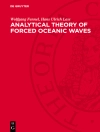This book presents an updated state-of-the-art for managed aquifer recharge (MAR) for MENA regions. MENA regions are home to 6% of the world’s population but only possess 1.4% of its water resources with almost absolute scarcity. Groundwater is the primary source of water in 54% of MENA countries. Therefore, the MENA regions seek sustainable management solutions amid its arid climate and rising demands from urbanization and agriculture. MAR aims to help sustain groundwater resources. This book explores MAR as a strategic approach to reducing water security by enhancing groundwater supplies. Utilizing techniques such as soil aquifer recharge, aquifer storage and recovery, rainfall harvesting, and riverbank filtration. The presented case studies offer deep insights into MAR methods, their implementation, and MAR technologies. The beneficiaries of the book include postgraduate students, academics, policymakers, and practitioners in water resources.
विषयसूची
Chapter 1. An Overview of Water Resource Challenges and Managed Aquifer Recharge (MAR) in the MENA Region (Mustafa El-Rawy).- Chapter 2. Advancing Groundwater Management and Seawater Intrusion Monitoring in the Middle East and North Africa: Exploring the Potential of Nuclear Tracer Techniques (Mohamed A. S. Abdel Monem).- Chapter 3. Rainwater Harvesting for Managed Aquifer Recharge and Flood Mitigation in the MENA Region (Mustafa El-Rawy).- Chapter 4. Soil Aquifer Treatment (SAT) for Managed Aquifer Recharge and Water Quality Improvement in the MENA Region (Hani Alharbi).- Chapter 5. Applicability of River Bank Filtration for Affordable Drinking Water in the MENA Region: Hydrogeological Insights and Water Quality Implications (Ahmed Abdelrady).- Chapter 6. The Status of the Applications of the Managed Aquifer Recharge in the Sultanate of Oman (Osama Ragab).- Chapter 7. Assessment of Riverbank Filtration (RBF) for Drinking Water Supply in Upper Egypt (Mohamed Galal Eltarabily).- Chapter 8. A Tale of Two Countries: The Potential of Managed Aquifer Recharge in Pakistan and Egypt (Amar Razzaq).- Chapter 9. Potential Environmental Risks of Aquifer Recharge Using Treated Wastewater in MENA Countries (Heba Fathi).- Chapter 10. Impact of Aquifer Recharge on Groundwater Quality (Ahmed Khaled Abdella Ahmed).- Chapter 11. Conclusions and Recommendations for “Managed Aquifer Recharge in the MENA Countries” (Mustafa El-Rawy).
लेखक के बारे में
Prof. Dr. Mustafa El-Rawy is a professor of water resources at the Faculty of Engineering, Minia University, Egypt. He earned his Ph.D. in Water Resources Engineering from Vrije Universiteit Brussel (VUB) in 2013. He completed his M.Sc. in Water Resources Engineering (IUPWARE Programme) from Katholieke Universiteit Leuven (KUL) and Vrije Universiteit Brussel (VUB) in 2009. He served as a postdoctoral fellow at Sultan Qaboos University, Muscat, Oman, focusing on the project ‘Managed Aquifer Recharge using Treated Wastewater in Different Geological Settings of MENA Countries’ from September 2014 to September 2015. He also held a postdoctoral fellowship at VUB from October 2015 to March 2016. He has extensive research experience in various areas including water resources management, hydrology, groundwater modeling, managed aquifer recharge (MAR), groundwater-surface water interaction, flood hazards, climate change, water quality, riverbank filtration, and artificial intelligence techniques. Prof. El-Rawy has authored or co-authored more than 100 papers across national and international journals, conferences, books, and book chapters. Moreover, he is a reviewer for several international scientific journals indexed in Scopus and Wo S. Currently, he is working as a professor of water resources engineering at the College of Engineering, Shaqra University, since 2019.
Prof. Abdelazim Negm is a professor of Hydraulics (and Water Resources) at Zagazig University. His current domain of research is sustainable water resources and their management. He led several international projects and participated in some others. Prof. Negm is a member of IAHR, ICWEES, EGU, and IAH, and a member of the scientific committee of several international conferences and of the organizing committee of others and participated in more than 95 conferences. He delivered several keynote talks at international conferences. Also, he is a reviewer for more than 50 international scientific journals that indexed in Scopus and Wo S. He has published more than 350 papers, 100 book chapters, and 50 contributed volumes from 2017 to 2021 in Springer International Publishing House. He is the editor of the Springer book series “Earth and Environmental Science Library Series“ and “Deltas of the World Book Series“. He is a guest editor of several International journals and a member of the editorial board of others. He is a member of Springer’s Handbook of Environmental Chemistry Book Series.












